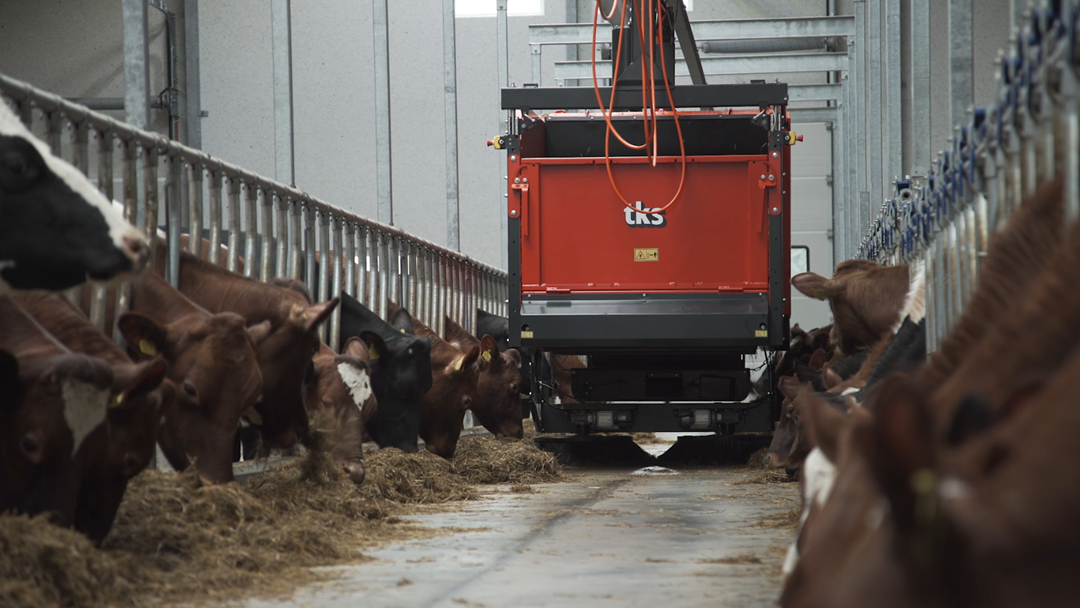The agriculture industry is currently experiencing a digital revolution. Agriculture is getting smarter; sensors and other technologies are increasingly being employed to reduce manual labour, increase production and quality, and improve animal welfare. Despite these changes, feeding of livestock today is largely done with tractor and manual equipment, which is time consuming and carries the risk of injury to workers. Feed content must also be adjusted regularly, to control for large variations in quality due to seasonal or climatic variations. But today's manual workflow for collecting and analysing feed content is too slow to give proper feedback to the farmer – reducing animal welfare and productivity.
An automatic feeding system that analyses, fills, and distributes feed fully automatically is safer and better utilises the farmer's working hours, and the timing and quantity of food delivery can be controlled precisely to optimise animal welfare and productivity. TKS Agri is today a leading supplier of rail-based, roof-hung automatic feeding systems. This solution is suitable for Nordic conditions, where building requirements make the roof construction strong enough to withstand the installation of the system, but unsuitable in many other countries. Additionally, European farms typically consist of several separated buildings, making rail-based solutions difficult and expensive to install or modify.
To overcome these challenges, TKS Agri in collaboration with ORKEL, NMBU, Felleskjøpet, and SINTEF will develop a ground-breaking, autonomous feeding robot that does not need rails or other expensive infrastructure and can be flexibly employed in various environments. The autonomous solution will be scalable, cost-effective, compact, and safe to operate on busy farms. An accompanying feed kitchen will also be developed that measures the feed quality and adapts the feed accordingly – further increasing quality, production, and animal welfare.

